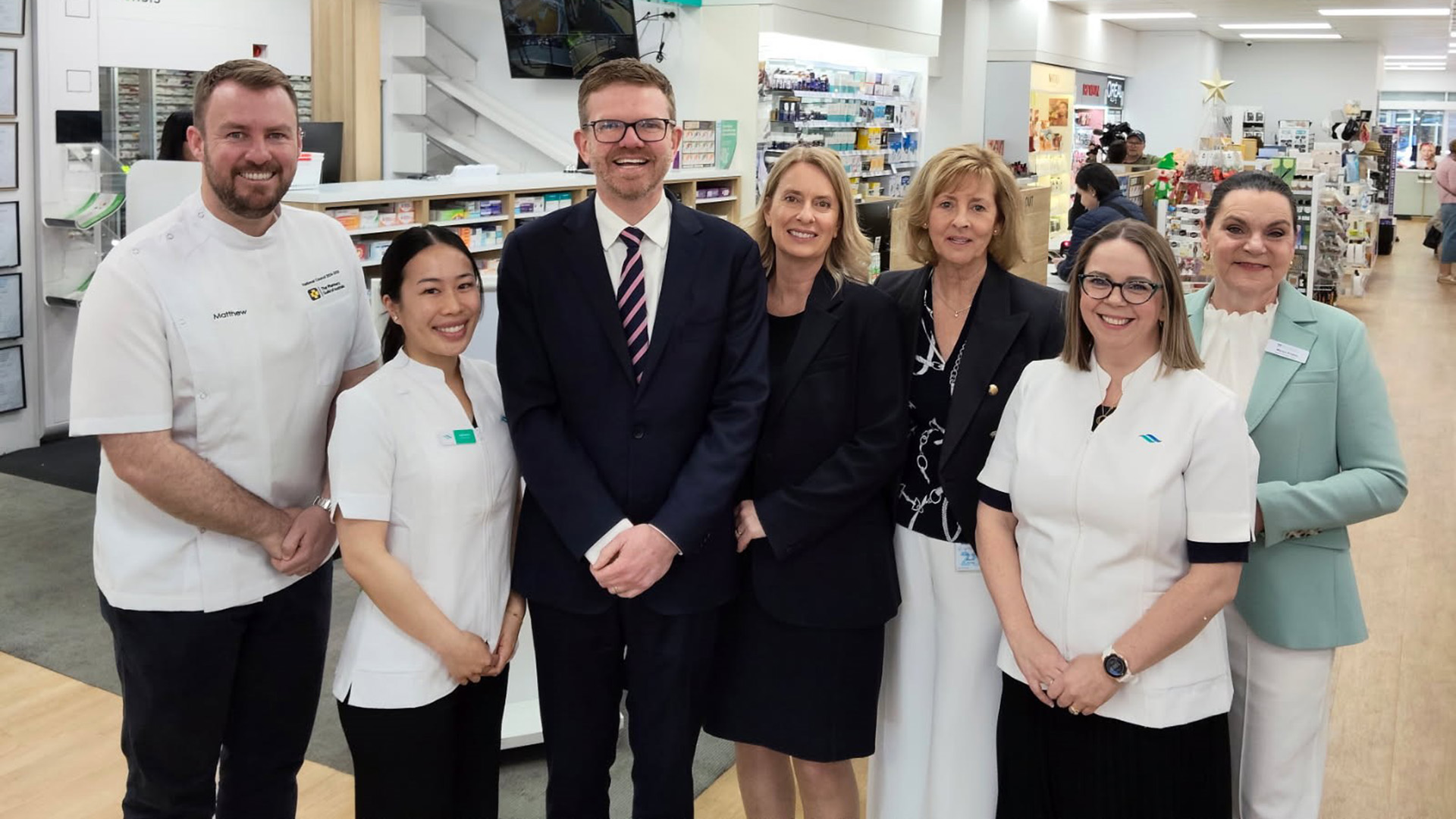New Graduate Certificate in Pharmacist Prescribing will take pressure off GPs and emergency departments.
Adelaide University will offer a new program in 2026 that will enable trained pharmacists to expand the range of healthcare services they can deliver, as part of a new State Government initiative to reduce pressure on the state’s GPs and emergency departments.
Up to 40 pharmacists are expected to enrol in the first cohort of the Graduate Certificate of Pharmacist Prescribing, being offered in Semester 1, 2026 at the new university, subject to external accreditation and approval by SA Health.
The University will capitalise on the combined expertise of UniSA’s School of Pharmacy, and the University of Adelaide’s School of Medicine, as they join the newly formed College of Health to deliver the AU program.
The program will include four, six-unit courses undertaken as part-time study over 12 months, enabling qualified pharmacists to assess, provide advice and treat patients presenting with symptoms of a variety of common health conditions approved under the Government’s Expanded Pharmacy Scope program. These include:
- Skin conditions (shingles, psoriasis, dermatitis, school sores, acne)
- Ear infections and common respiratory conditions (allergic rhinitis, asthma, COPD)
- Gastrointestinal problems (nausea and vomiting, gastro-oesophageal reflux)
- Preventive care (travel health, smoking cessation, oral health, weight management, cardiovascular disease risk factors)
- Hormonal contraception
- Minor injuries (wound care, musculoskeletal pain)
Adelaide University Pro Vice-Chancellor of the College of Health, Professor Andrew Zannettino, says the program will be primarily delivered online, allowing working pharmacists a great deal of flexibility to complete their studies.
“The curriculum will feature a digitally-rich learning environment, including interactive workshops and case-based simulations,” Prof Zannettino says.
“Multiple face-to-face learning components in relation to aspects of patient assessment, clinical care and the courses’ final assessments will be scheduled to consider the needs of the learners as much as possible.
“Upon graduation, pharmacists will strengthen community access to primary healthcare by assessing and managing an expanded range of common conditions within their scope of practice, referring to other health practitioners when needed.”
Community pharmacists are often the first point of contact for people experiencing health issues, many of whom are reluctant to see a GP or go to an emergency department until the problem becomes serious.
This puts strain on the health system and contributes to hospital ramping down the track if conditions are not treated early.
Professor Zannettino says the program will provide South Australians with timely access to care through their trusted local pharmacist.
“This will relieve pressure on medical practitioners and the health system and improve the overall health of our community.”
The initiative expands on the successful rollout by SA Health of new pharmacy services last year, allowing South Australian women to access antibiotics for urinary tract infections and a resupply of the oral contraceptive pill from a trained pharmacist at a local pharmacy, without needing a doctor’s appointment.
Data shows that more than 11,359 UTI pharmacy services have been provided since March 2024, corresponding with a 27.3% drop in UTI presentations to metropolitan hospitals between March 2024 and February 2025.
Since May 2024, more than 1,301 South Australian women have also taken advantage of the oral contraceptive resupply service.
The State Government has committed $2.2 million to support the rollout of the expanded scope of practice, and will encourage pharmacists to sign up for the Graduate Certificate in Pharmacist Prescribing by offering partial subsidy of the course fees which are expected to be approximately $12,000.
Adelaide University’s Graduate Certificate in Pharmacist Prescribing was developed in collaboration with Monash University, the University of Queensland and the University of Sydney which - together with Adelaide University - comprise the National Alliance for Pharmacy Education.
Registered pharmacists interested in applying for the Semester 1 intake should apply for the subsidy through SA Health now. Subsidy applications close on 14 November 2025 for the initial intake. The graduate certificate will soon open for application, following finalisation of accreditation.
Visit the SA Health website for more information and to apply for the subsidy.
